This wonderful Cornish workshop and museum is dedicated to the legacy of studio pottery trailblazer Bernard Leach
Treasures of Oceania: Royal Academy curator picks six of the best
Treasures of Oceania: Royal Academy curator picks six of the best
20 Sep 2018
A royal gift
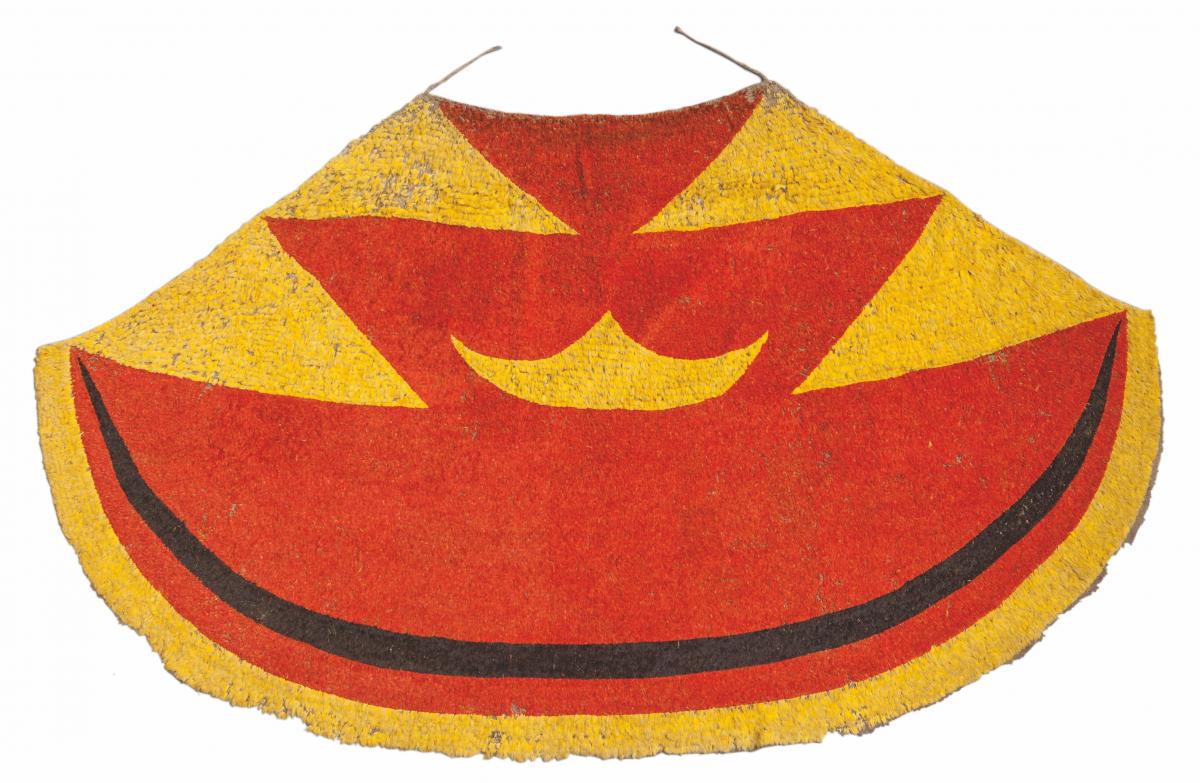
Ahu ula (feather cloak) Museum of Archaeology and Anthropology, University of Cambridge
In Hawaiian society, feathered cloaks were reserved for high-ranking individuals and worn during ceremonial occasions. A cornucopia of colour, this example is made from the feathers of indigenous Hawaiian birds. Its story, sadly, is shrouded in tragedy. In 1824, Kamehameha II, the king of Hawaii, led a delegation to England, to meet with King George IV. The party brought a number of high-status objects to present to the king, including this cloak. But Kamehameha II and his wife contracted measles shortly after their arrival in London and died.
Canoe carvings
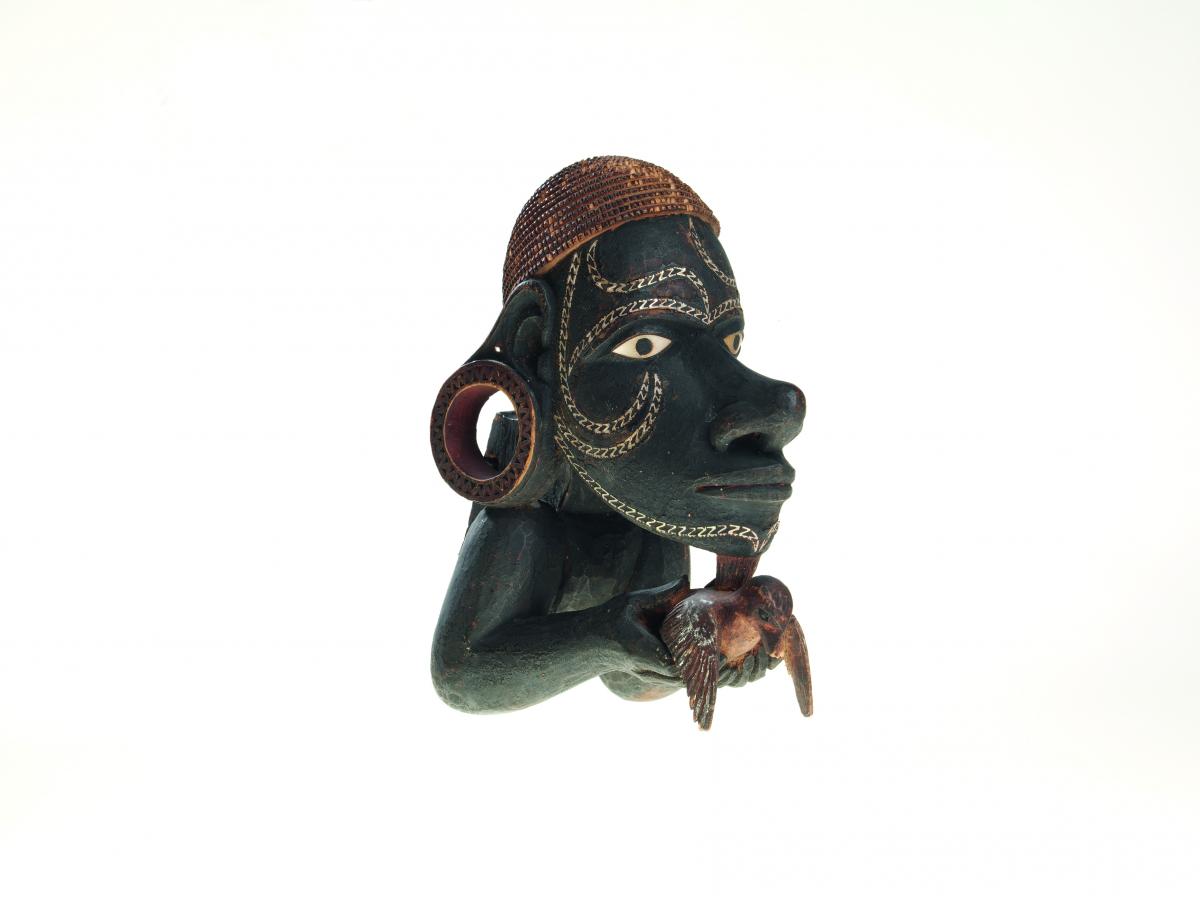 Collection Eugen Paravicini 1929; © Vb 7525; Museum der Kulturen Basel; photo: Derek Li Wan Po; 2013; all rights reserved
Collection Eugen Paravicini 1929; © Vb 7525; Museum der Kulturen Basel; photo: Derek Li Wan Po; 2013; all rights reserved
Dramatic and intricately carved, this 19th-century Solomon Islands ‘nguzunguzu’ is a prow ornament from a tomako (war canoe). Tomakos were large and elaborately decorated canoes, primarily used in lagoons. The figure is clutching a pigeon, a symbol of navigational virtuosity, and is made from wood, pigments, resin and shell. Canoes were – and remain – an integral part of the Solomon Islands’ culture; there were many different types of vessels, from trading canoes to those used on diplomatic voyages.
The sacred item
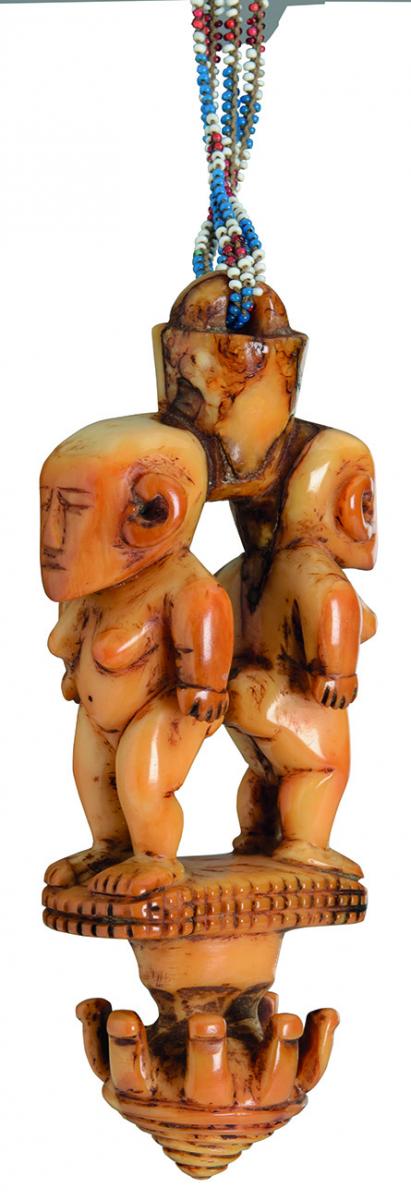
Museum of Archaeology and Anthropology, University of Cambridge
Carved from a single whale tooth, this rare Fijian double-headed ivory hook was thought to be imbued with power. It is believed to depict the deity Nalilavatu, and played a crucial role in rituals and ceremonies. Made from whale ivory, glass beads and fibre, it was kept inside a spirit house within the temple, and protected the hallowed space from thieves. The hook is just one of three known objects that depict Nalilavatu.
Skilled craftsmanship
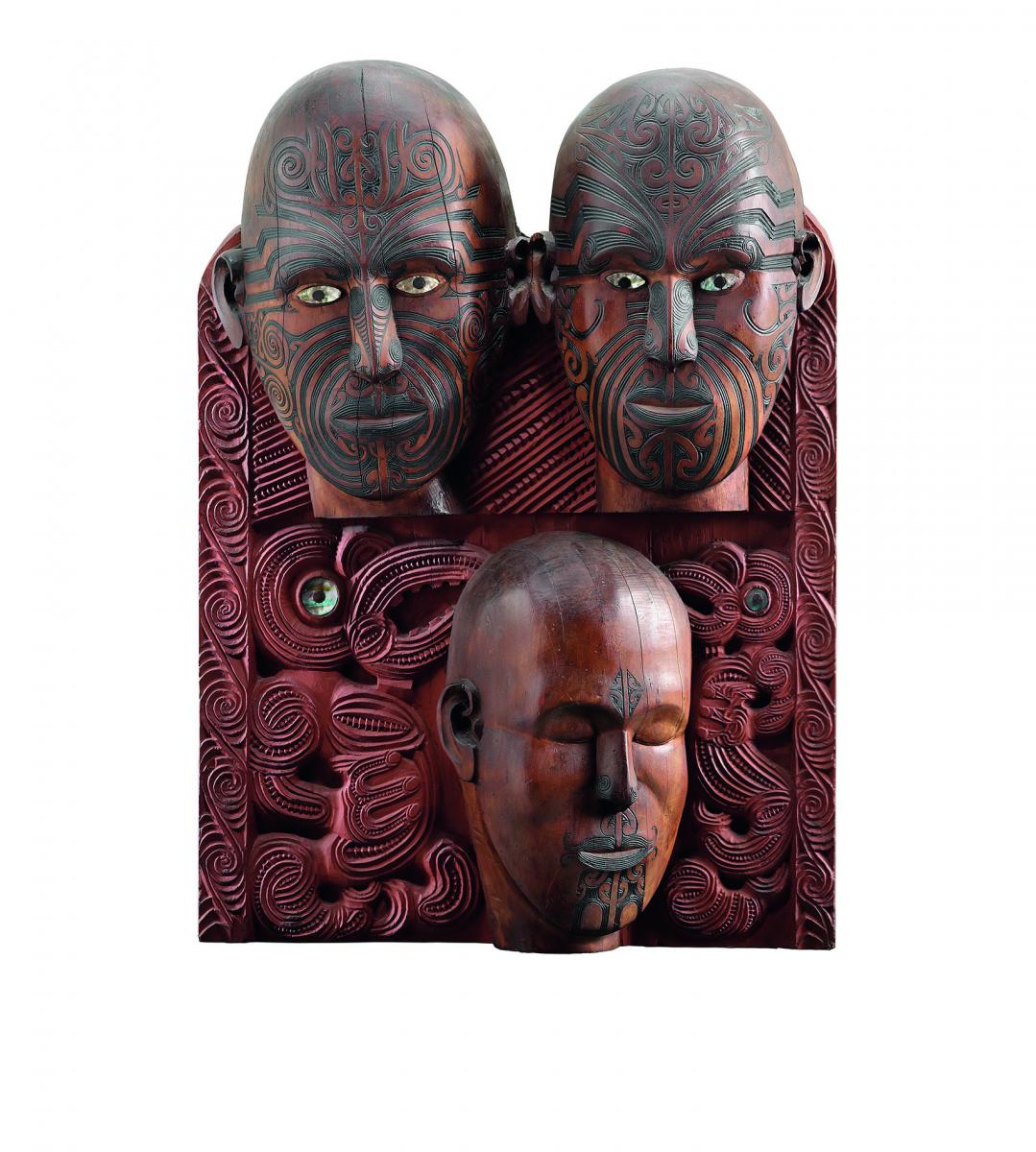 © Image courtesy of The Museum of New Zealand Te Papa Tongarewa
© Image courtesy of The Museum of New Zealand Te Papa Tongarewa
One of the most important Māori sculptors of the late 19th and early 20th centuries, Tene Waitere combined traditional carving techniques with innovative concepts. His Tā Moko panel captures this fusion of old and new. Commissioned by Augustus Hamilton to illustrate his book on Māori art, the panel shows male and female facial tattoos. This portrayal of living people marked a shift away from traditional forms of Māori art, which centred on departed ancestors. Painted red, the wooden panel features inlaid shells.
New perspectives
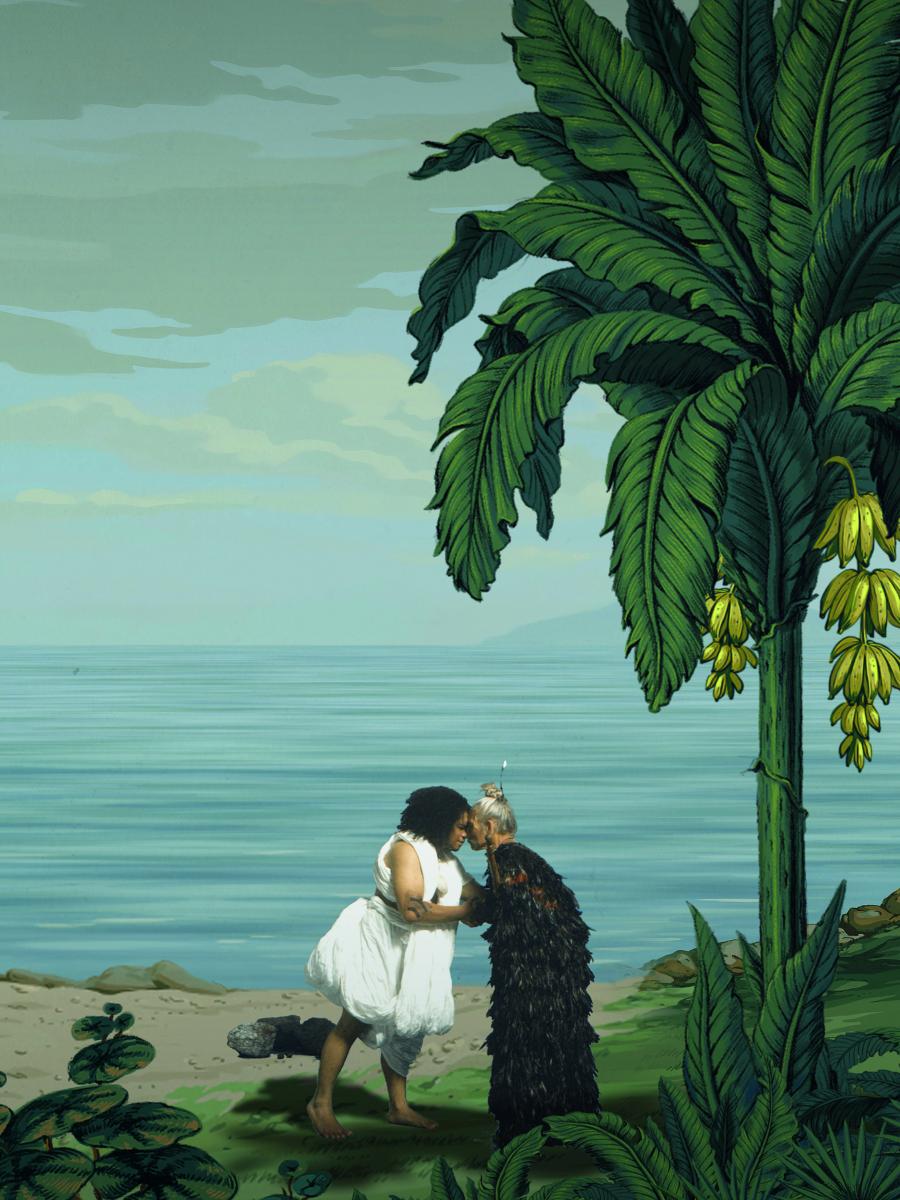
Lisa Reihana, In Pursuit of Venus Auckland Art Gallery Toi o Tāmaki, gift of the Patrons of the Auckland Art Gallery, 2014 © Image courtesy of the artist and ARTPROJECTS
Ten years in the making, a panoramic video by New Zealand multimedia artist Lisa Reihana reclaims the stories of the communities affected by European voyagers. In Pursuit of Venus is a reimagining of Joseph Dufour’s 19th-century wallpaper Les Sauvages de la Mer Pacifique, and dismantles Dufour’s romanticised view of Pacific cultures. Featuring real actors and traditional music, the video offers an alternative narrative to European accounts of Pacific populations.
Revered ancestor
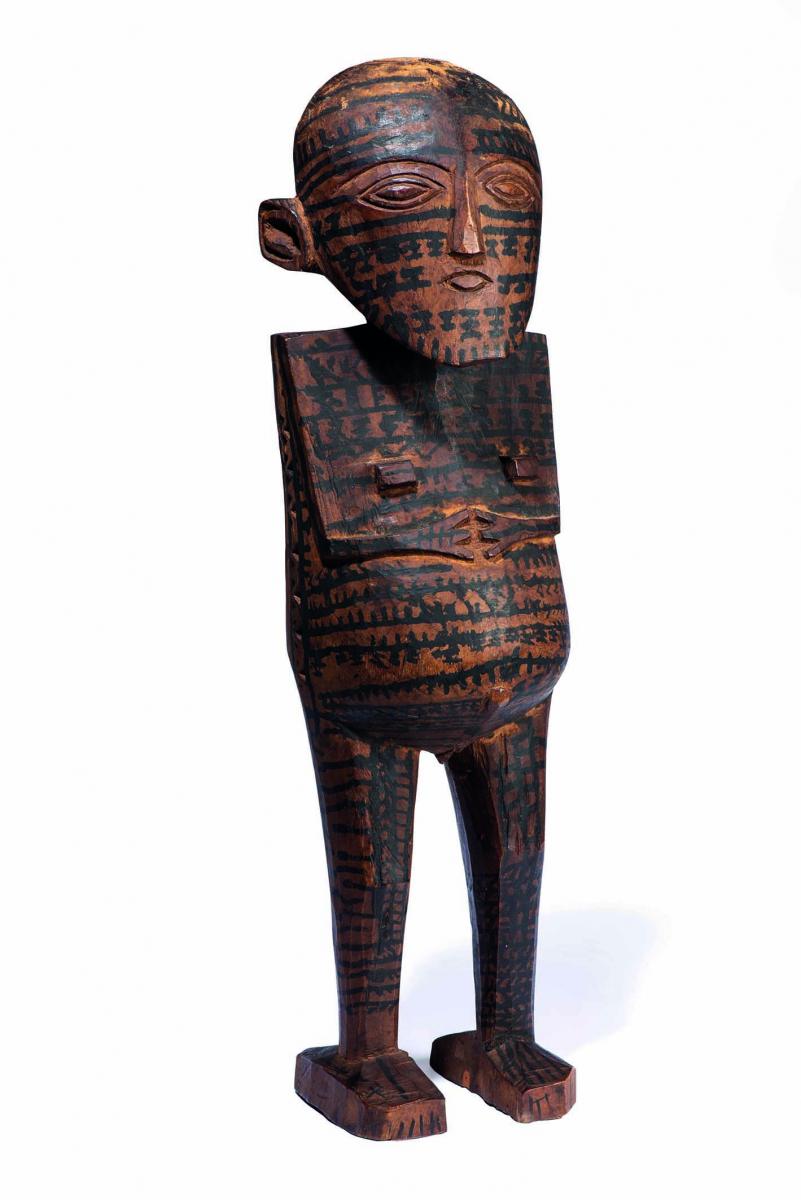
Aitutaki, Cook Islands; Female figure, acquired in Munich, 1825; wood, pigment; 23 5/8 x 6 5/16 x 5 1/8 inches; Staatliches Museum für Völkerkunde, Munich; Photograph: Marietta Weidner.
Complete with painted tattoos and elliptical eyes, this female figure depicts a founding ancestor of Aitutaki, an island in the Cook Islands. Following conflict in her homeland of Tubuaki, she accompanied the navigator Ru, his four wives, four brothers and 20 chiefly maidens, to settle on the island. Unlike many Polynesian god figures, she is adorned with tattoos, which highlight her ancestry and high-ranking status.
Oceania. 29 September–10 December
Royal Academy of Arts, London
About the Author
The Arts Society
JOIN OUR MAILING LIST
Become an instant expert!
Find out more about the arts by becoming a Supporter of The Arts Society.
For just £20 a year you will receive invitations to exclusive member events and courses, special offers and concessions, our regular newsletter and our beautiful arts magazine, full of news, views, events and artist profiles.
FIND YOUR NEAREST SOCIETY
MORE FEATURES
Ever wanted to write a crime novel? As Britain’s annual crime writing festival opens, we uncover some top leads
It’s just 10 days until the Summer Olympic Games open in Paris. To mark the moment, Simon Inglis reveals how art and design play a key part in this, the world’s most spectacular multi-sport competition



